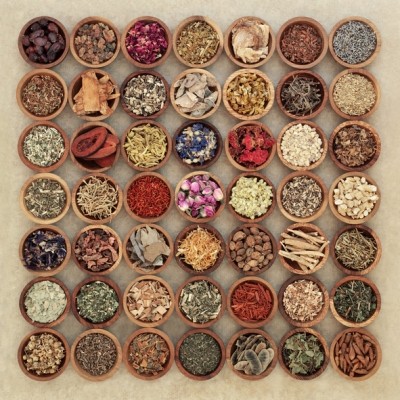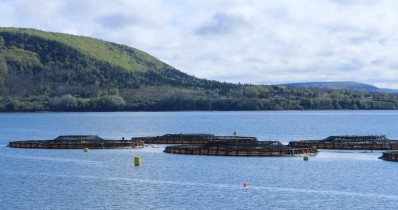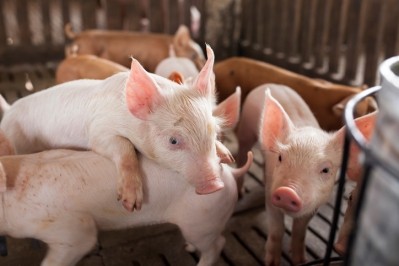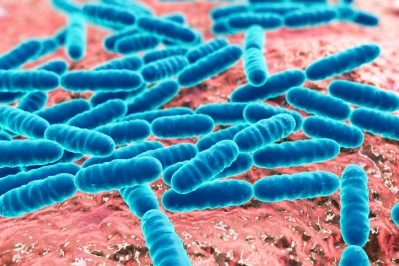Aloe vera supplementation may boost immune function in farmed fish
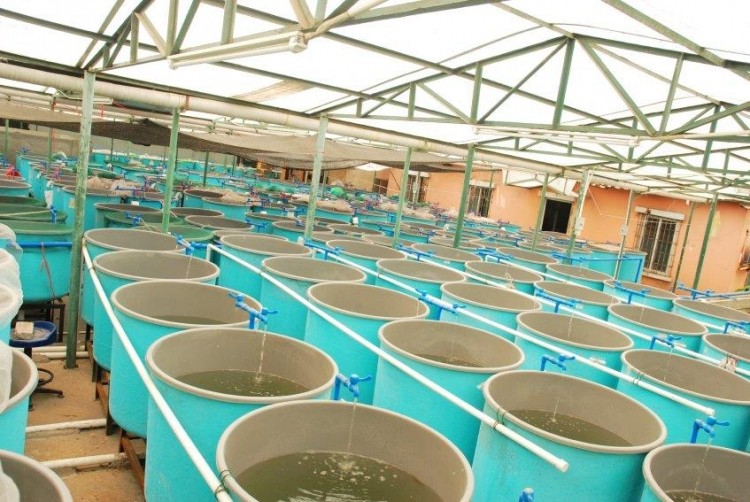
A team of researchers from São Paulo State University in Brazil examined the use of aloe vera (a. vera) in the diet of stressed pacu faced with a disease challenge. The group published its work in the journal Fish & Shellfish Immunology.
“The main purpose of this study was to evaluate whether feeding fish with various levels of A. vera would affect their immune response to heat-killed Aeromonas hydrophila injection after they have been subjects to transport stress,” they said.
The researchers found that adding the A. vera extract to the diets of stressed fish was able to prevent stress-caused immunosuppression by supporting leukocyte respiratory burst (LRB) and hemolytic activity, they said. The feed additive also may modulate the innate immune response in fish.
“Dietary A. vera either improved or prevented loss of innate immune activity in pacu after a stressful handling and a bacterial infection,” the researchers said. “Recently, increasing efforts have been made to improve fish immune-competence, and these results are promising.”
Why aloe vera in feed?
Fish production through aquaculture has increased, as have occurrences of fish disease, said the researchers. Increasing outbreaks of disease have been linked to intensive rearing procedures that stress fish and can alter fish immune response.
Such conditions also may allow for pathogens to increase in virulence, they said. Research examining how to strengthen the immune system is of interest to industry.
Some of the methods tried to prevent disease outbreaks include chemotherapy, vaccination and use of products to stimulate the immune system, they said. However, practices like use of antibiotics or chemotherapy have raised other challenges including the development of drug-resistant pathogens and negative environmental effects.
Vaccination has been considered, but involves fish handling, which causes additional stress and can be expensive, they said. Immuno-stimulants may be the most viable option.
In examining potential immune system boosters, plants with medicinal properties have shown potential, said the researchers. “Herbal extracts are easily obtained, and usually inexpensive, act against a broad spectrum of pathogens, and may have limited environmental impact due to their biodegradability,” they added.
Aloe vera was a plant of interest as several products have been derived from the plant and it has been linked to health benefits in chickens and other animals, they said. It is considered to have healing, antibacterial, antiviral, antifungal, gastro-protective and immune-modulating elements.
However, the plant has been relatively unexplored for use in aquaculture, they said.
Methods and materials
During the feeding trial, 240 juvenile pacu were given one of four experimental diets for a period of 10 days, said the researchers. The diets included a control commercial diet with no A. vera and that diet with 5g kg-1 (0.5%), 10 g kg-1 (1%) or 20g kg-1 (2%) A. vera extract added, they said.
A. Vera was harvested, processed to remove aloin and fiber then spray dried for use in the feed, they said.
On day 11, blood samples were collected and fish were transported for 4h to provide a stress experience, they said. After transport, a sample of fish was collected to measure LRB, glucose levels, hemolytic activity of complement system, serum lysozyme concentration and cortisol levels.
The remaining fish were divided into three groups and either not injected, injected with a placebo or injected with A. hydrophila, they said. A sample of fish was collected 24 h post injection to check for plasma cortisol, glucose level, leukocyte respiratory burst, serum lysozyme level and hemolytic activity in the complement system.
Results
No mortality was noted during the experimental period, said the researchers.
“A relevant enhancement or prevention of loss of the innate immune response induced by A. vera was observed,” they said. The supplementation prevented reductions in leukocyte respiratory burst and hemolytic activity of the complement system, they added.
“A. vera extract enhanced innate immune parameters and consequently the ability of fish to cope with pathogens following transport stress,” they said. “These findings show that A. vera has promise for use in aquaculture and add further evidence that medicinal herbs added to fish feed assist to prevent disease outbreaks.”
Plasma glucose and cortisol concentration were higher 2.5-3-fold for fish on all diets after transport compared to initial sampling, they said.
Fish that had diets with 1 or 2% A. vera had higher levels of plasma cortisol 24h post transport than control diet fish, said the researchers. Diets with A. vera tended to decrease cortisol levels in fish facing the disease challenge.
LRB was lower in fish getting the control diet immediately after transport when compared to control values and those 24h post transport, they said. Fish getting A. vera supplemented diets had higher LRB than control fish directly after transport.
Control group fish had reduced LRB when facing the disease challenge, while all fish getting A. vera had increased LRB values, they said. Fish getting 0.5 and 2% supplemented diets had increased serum lysozyme concentration (SLC) 24h after transport compared to other fish groups.
SLC also was higher in fish getting the diets supplemented with more A. vera compared to the control and fish on the 0.5% diet, they said. Hemolytic activity (ACH) dropped for fish on the 2% diet at initial sampling.
“Immediately after transport (arrival), control fish showed a significant reduction in ACH compared to initial values (2-fold),” said the researchers. “However this reduction was prevented in fish fed with A. vera diets as the ACH in these groups was approx. 2-fold higher than control. The ACH 24 h after transport (recovery) was approx. 2.5-fold higher in fish fed with 1 and 2% A. vera diets than in control.”
Source: Fish & Shellfish Immunology
Title: Aloe vera enhances the innate immune response of pacu (Piaractus mesopotamicus) after transport stress and combined heat killed Aeromonas hydrophila infection
Authors: Fábio Zanuzzo, Rafael Sabioni, Luz Montoya, Gisele Favero, Elisabeth Urbinati
DOI: doi.org/10.1016/j.fsi.2017.04.013
